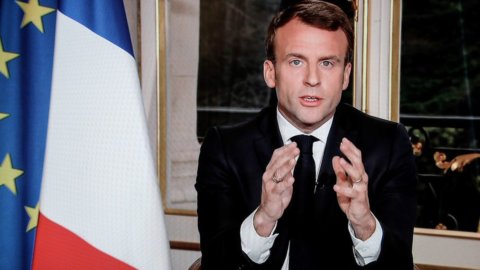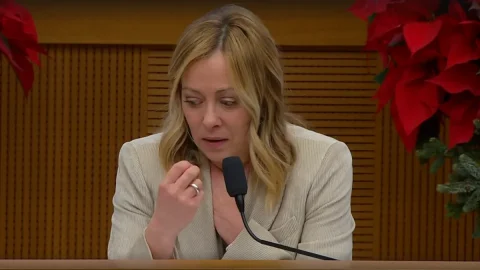The ceiling on cash rises from one thousand to 3 thousand euros. It is one of the novelties of the 2016 Stability Law, together with many others: abolition of the Tasi on first homes and Imu, Irap and Ires, interventions on VAT numbers and contributions, a plan for the South and the fight against poverty, incentives for research and also a new competition for university teachers. Nothing to do, however, for pensions. The menu of the new budget takes shape and the countdown is about to expire: the Council of Ministers will approve the maneuver on Thursday 15 October and will present the text to the Senate on the same day. The value of the package of measures will be around 27 billion euros. Here are the main new arrivals.
CASH CAP
"For next year, one of the things we will propose to Parliament will be to bring cash levels back to the European average of 3 euros (from the 1.000 limit introduced by the Monti government), a small gesture to encourage consumption," the premier said this morning Renzi in a radio interview with Rtl.
TAXES AND IMU ON THE FIRST HOME
The government intends to cancel the Tasi on first homes and in all probability from next year tenants will also be exempt from paying the tax (today they have to pay between 10 and 30%). The same fate for the Imu on first homes, which, however, is already paid only for luxury properties.
AGRICULTURAL IMU AND AGRICULTURAL IRAP
Agricultural Irap and agricultural Imu will also be abolished, regardless of professional qualification (general tax payers, agricultural entrepreneurs or direct farmers) and whether the land is located in mountainous or partially mountainous municipalities. Goodbye also to the Imu on bolted vehicles, i.e. the machinery of companies fixed to the ground.
IRES
The cut in the tax on corporate profits "below 25%" will arrive in 2017 - Prime Minister Matteo Renzi announced at the beginning of the month -, but "at least in part" the tax reduction will be brought forward to 2016, with "an intervention significant reduction in taxes for businesses”. Furthermore, the cut will be "for everyone", not just for the South, as initially assumed.
VAT NUMBER
After the unfortunate revision carried out last year on the old minimum regime (which however survived, as an emergency second track, and will expire on 31 December 2015), the aim is to introduce a new flat-rate regime at 5%, with times and revenues different from those currently in force. Among the various hypotheses there would be the idea of an enabling law on the subject (an integral part of the stability law).
140% DEPRECIATION FOR COMPANIES THAT PURCHASE MACHINERY AND EQUIPMENT
Last Saturday, speaking to entrepreneurs in Treviso, Renzi announced that the maneuver will also introduce a "super depreciation" of 140% for entrepreneurs who will invest in machinery and equipment in 2016. The mechanism is to scale: from 2017 the percentage will gradually decrease. The measure is worth one billion euros and, according to the Undersecretary for the Economy Enrico Zanetti, it should also apply to investments made in the last quarter of 2015.
CONTRIBUTIONS: FROM 2016 HALF DISCOUNT ON NEW HIRES
This year, the discount on contributions for new hires with permanent contracts has a ceiling of 8 euros a year for a maximum of 36 months. From 2016 the bar will drop to 4 thousand euros for 24 months and from 2017 to 2 thousand euros for 12 months.
RAI FEE
Next year the Rai license fee will also drop, which “will go from 113 euros to 100 euros – said the Premier again –, everyone has to pay it: I believe that the instrument that will be chosen will be the bill. Whoever is honest pays less”. They have arrived on the project of the fee in the bill strong protests from the managers, but the president of the Energy Authority, Guido Bortoni, explained in an interview with Corriere della Sera that "there may be various solutions that respect the dynamics of the electricity market, which thus would not take charge of the collection but would support it ”.
MOBILE BONUS AND ECOBONNUS
As regards the furniture bonus and building renovations and the eco-bonus for energy redevelopment interventions in buildings, they should be extended to the end of 2016.
PLAN FOR THE SOUTH
To relaunch the Mezzogiorno, the Executive plans to use around 10 billion euros: 3 will be released from the EU flexibility clause for investments, while 7 will come from the release and partial reprogramming of appropriations already planned but partially used so far. In particular, the resources should be used to carry out works that can be started immediately in the Municipalities and ready-made inter-regional projects.
ANTI-POVERTY PLAN
There is talk of a structural measure against poverty: an enabling law connected to the maneuver capable of rearranging all the instruments of social assistance and fighting poverty.
AID TO MINORS IN DIFFICULTY
In particular, as an ad hoc intervention, aid will be provided for families who have dependent minors and live below the poverty line, starting with those with an ISEE under 3 thousand euros. Each member of the family nucleus should receive a variable monthly sum depending on the ISEE and the number of children (the basic value is 80 euros net). To obtain this support, parents will have to meet certain conditions, such as looking for a job and sending their children to school. It is expected that in 2016 the measure will involve 500 children, or half of those who live in conditions of absolute poverty in our country.
IMPROVED DISCOUNTS FOR CORPORATE CONTRACTS
The maximum threshold of bonuses and benefits that can be downloaded will rise from 2 to 3.500 euros a year and the income of the workers involved will rise from 30 to 40 gross euros a year.
TAX CREDIT FOR RESEARCH AND DEVELOPMENT
The Government plans to allocate 200 million euros to guarantee a tax credit to those who invest in research and development.
DIGITAL TAX
“After waiting for a European law for two years – Renzi announced last month –, from 2017 January 2016 we imagine a digital tax that will strike with different mechanisms, to charge taxes in the places where transactions and agreements are made. The major players in the global digital economy, such as Apple and Google, have a system whereby they do not pay taxes in the places where they do business: we have been waiting for a European law for two years and we have decided to continue waiting throughout the first half of XNUMX, but from this Stability Law we are already imagining a digital tax”.
UNIVERSITY: COMPETITION FOR 500 PROFESSORS FROM ABROAD
A competition is also on the way for 500 university professors who will arrive (or return) to Italy from abroad. “In the stability law there will be an ad hoc measure to bring 500 university professors to Italy, including Italians – Renzi said on Sunday evening to 'Che tempoche fa' – a way to attract brains with a national competition based on merit: we will give also a nest egg for research projects”.
PENSIONS: FLEXIBILITY POSTPONED TO 2016
On the other hand, one of the most awaited packages of measures remains outside the maneuver, the one that was supposed to guarantee greater flexibility in leaving for those who are close to retirement. “The numbers are not clear – Renzi explained again -, we have to postpone everything to 2016. Changing the pension system is only possible on the basis of clear numbers. Without wisdom, without numbers, damage is done. We will propose a solution only when everything is clear. We have not yet found the solution to allow for retirement a couple of years earlier”.
OPTIONAL REDUCED HOURS FOR THE OLDER
However, an experimental measure is being studied which could allow workers to choose part-time hours in the last two years of work without affecting their future pension, because the State would bear part of the contributions. In exchange, companies would not be obliged to hire a young person and the number of people involved should be limited, in order to avoid excessive expenditure for the public coffers.





